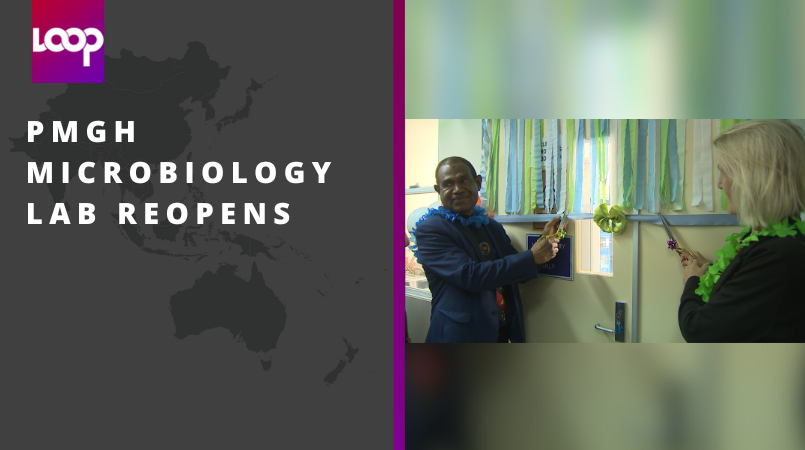
Port Moresby General Hospital (PMGH) celebrated the official reopening of its newly renovated Microbiology Laboratory-Central Public Health Microbiology Lab, marking a significant milestone in advancing healthcare in Papua New Guinea (PNG).
The event, held at PMGH, was attended by prominent figures including Health Secretary Dr. Osborne Liko and British High Commissioner to PNG Anne Macro.
The renovation, funded by the UK government's Fleming Fund Country Grant, represents a substantial enhancement in public health and diagnostic capabilities. British High Commissioner Anne Macro expressed her pleasure at the lab’s transformation, recalling her previous visit when renovations were incomplete.
"It's great to know that both labs are now in full working order and equipped with technology that will help save lives and protect the economy," she said.
Dr. Liko emphasized the critical role of the upgraded laboratories in diagnosing and treating infectious diseases.
"Today marks a significant advancement in our healthcare system. The newly renovated Microbiology Laboratory will play a pivotal role in diagnosing and treating conditions such as tuberculosis, malaria, HIV/AIDS, and emerging infections. This facility, equipped with advanced technology and staffed by skilled microbiologists, enhances our ability to monitor antimicrobial resistance and respond effectively to health threats," said Dr. Liko.
Dr. Paki Molumi highlighted the severe threat of antimicrobial resistance (AMR) to global health.
"Antimicrobial resistance is a silent pandemic that poses a critical threat to global health and society. If unchecked, AMR could cause 10 million deaths annually by 2050, with 4.73 million of those in Asia and the Pacific," Dr. Molumi stated.
He presented alarming 2023 AMR statistics from PMGH, noting high resistance rates for various pathogens.
He added, "At PMGH, Methicillin-resistant Staphylococcus aureus (MRSA) rates ranged from 34% to 56%. E. coli showed 36% and 44% non-susceptibility to ceftriaxone in urine and non-urine samples, respectively. Klebsiella pneumoniae exhibited 57% and 72% non-susceptibility to ceftriaxone in urine and non-urine samples. Meropenem resistance was 3% in Klebsiella and 4% in E. coli across all specimens. Vancomycin-resistant Enterococci (VRE) rates were 23% in various samples."
Dr. Molumi described AMR as having severe implications, including increased healthcare costs and threats to health security and economies.
"The Fleming Fund's support has been instrumental in upgrading our lab to world standards. The advanced equipment now available improves result turnaround times and clinical outcomes. This grant has also facilitated ongoing training for laboratory scientists, clinicians, and pharmacists, and enhanced quality laboratory practices," he added.
Dr. Molumi praised the PMGH Infection Prevention and Control (IPC) committee for their initiatives, including establishing healthcare-associated infection rates and producing in-house alcohol-based hand rub. "Looking ahead, we hope for continued collaboration with the Fleming Fund in Phase 2, focusing on antimicrobial stewardship activities," he expressed.
The renovation aligns with the National Action Plan on AMR surveillance (2019-2023) under the ONE HEALTH initiative, emphasizing the importance of both infrastructure and the training and development of local medical professionals.
